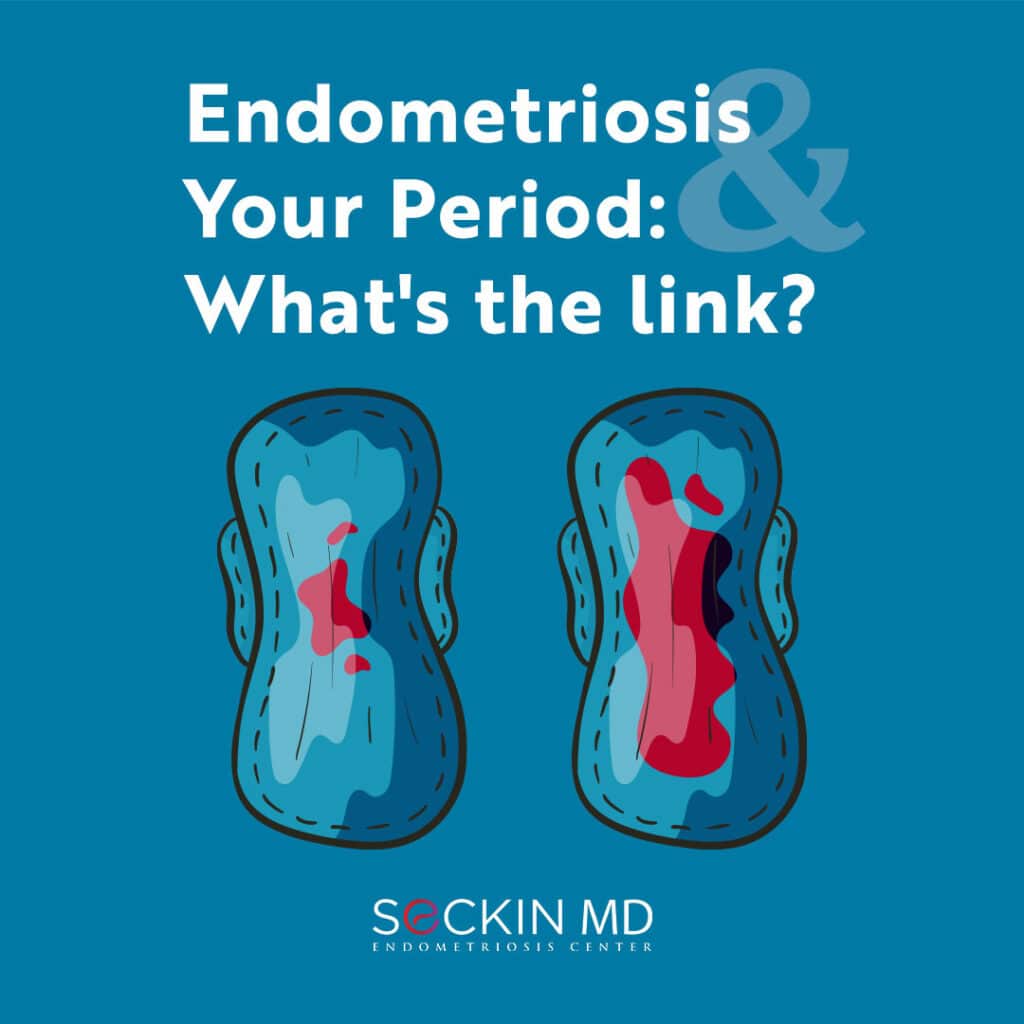Endometriosis & Your Period: What’s the link?

Endometriosis is often characterized by symptoms such as heavy menstrual bleeding and painful periods (dysmenorrhea). Your periods with endometriosis can appear similar to normal periods. But what can it tell you?
Are periods different in women with endometriosis?
Endometriosis can affect a woman’s menstrual cycle in several ways. Women with endometriosis often experience longer, heavier periods or bleeding in between periods (intermenstrual bleeding).
Endometriosis can also cause irregular periods. This means that the frequency of the menstrual cycle can be less than 21 days or more than 35 days with varying lengths of cycles each time.
Women with endometriosis are also at a higher risk of ectopic pregnancy. In this case, the fertilized egg can implant itself outside the uterus in areas like the fallopian tube, ovary, or abdominal cavity. Abnormal uterine bleeding can be the first sign of an ectopic pregnancy.
In rare instances, endometriosis can also cause blood in stool and urine.
Do menstrual clots mean endometriosis?
Menstrual clots occur during normal periods. Larger clots are a sign of heavy periods and can lead to severe cramping pain in the lower abdomen. Menstrual clots are often bright red, but they can have a darker appearance depending on how long blood stays in the uterus.
Clots can form due to several uterine abnormalities such as fibroids, polyps, and adenomyosis. They may also be secondary to hormonal imbalances, miscarriages, and endometriosis.
For now, menstrual clots and menstrual effluent are not diagnostic for endometriosis.
Can menstrual blood be a potential diagnostic marker for endometriosis?
Currently, laparoscopic deep excision surgery is the only gold standard for confirming the diagnosis and for treatment of endometriosis. However, there is a growing understanding that menstrual effluent (menstrual blood) holds great potential for studying how endometriosis arises, and ultimately how to diagnosis and treat the disease sooner.
Dr. Tamer Seckin contributed to a study that demonstrated key differences in the menstrual blood of endometriosis patients to those without endometriosis. This study was the first to show that uterine natural killer (NK) cells were significantly reduced in the menstrual blood of endometriosis patients. The study also showed that stromal fibroblast cells (SFCs) derived from the menstrual effluent of endometriosis patients had impaired decidualization in culture compared to those obtained from healthy controls. Decidualization is the process by which endometrial cells in the uterus prepare for and support pregnancy.
The Endometriosis Foundation of America (EndoFound) and Dr. Seckin also supported another related study that confirmed the above findings. This study analyzed gene expression profiles of stromal and uterine NK cells in endometriosis menstrual effluent using single-cell RNA sequencing. The differences in gene expression patterns found between endometriosis and normal menstrual effluents could provide important biomarkers for non-invasive diagnosis.
Did you notice something different in your menstrual blood? Please do not hesitate to comment on our post on Facebook or Instagram.
Get a Second Opinion
Our endometriosis specialists are dedicated to providing patients with expert care. Whether you have been diagnosed or are looking to find a doctor, they are ready to help.Our office is located on 872 Fifth Avenue New York, NY 10065.
You may call us at (646) 960-3080 or have your case reviewed by clicking here.